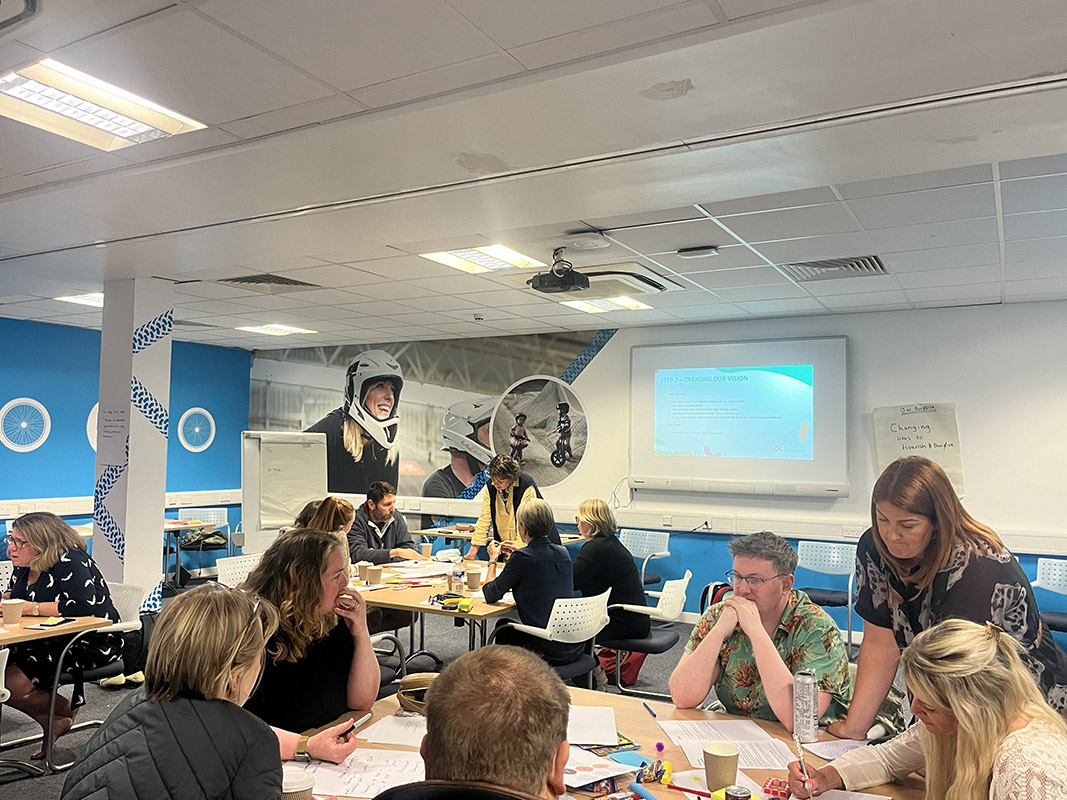Leadership today is less about rigid hierarchies and more about understanding people – how they think, process, and thrive. Increasingly, leaders are recognising that neurodivergence is not just something that exists “out there” among customers or communities; it also exists within their own teams, and sometimes within themselves.
When you lead a team that includes neurodivergent colleagues, you are not managing “exceptions,” you are leading humans whose brains work differently, sometimes in ways that bring unique innovation, focus, and creativity – and sometimes in ways that challenge conventional workplace expectations.
For leaders who may also be neurodivergent themselves, this is not theory. It’s lived experience.
What It Looks Like in Practice
When staff members are autistic or have ADHD, you may notice:
- Different communication styles. Some people prefer direct, straightforward feedback without cushioning, while others may prefer to think aloud, process verbally, or take extra time before responding.
- Productivity levels. ADHD can mean periods of high creativity and rapid output followed by less structured moments. Autism may bring deep focus and exceptional attention to detail, and sometimes difficulty switching tasks.
- Sensory and environmental needs. Noise, lighting, or interruptions can impact focus more than might be expected.. Small adjustments, like flexible seating, headphones, or predictable routines, make a difference.
- Unique approaches to problem-solving. Neurodivergent thinkers may see patterns and solutions others overlook, offering fresh perspectives.
It’s important to remember: no two people with ADHD or autism are the same. The phrase ‘if you’ve met one autistic person, you’ve met one autistic person’ rings true. Lived experience varies widely, which is why assumptions – positive or negative – are limiting.
Supporting Without Assumptions
Many leaders want to be supportive but fall into the trap of generalising. For example:
- “All autistic people prefer structure.”
- “All ADHD employees need extra reminders.”
While these patterns may hold true for some, they don’t reflect everyone’s reality. True support means asking, not assuming.
Practical ways to lead inclusively include:
- Create space for disclosure without pressure. Team members should know they can share their needs without fear of stigma – but also that they don’t have to disclose. Effective support isn’t about set ‘packages’. The real benefit comes when someone’s needs are supported, and this does not require a formal diagnosis.
- Ask about preferences. Instead of guessing, simply ask: “How do you prefer feedback?” or “What helps you stay focused during busy times?”
- Build flexibility into systems. Offer multiple ways of working – clear written briefs and quick verbal check-ins, for example.
- Be open. Talking about your own neurodivergence can help show that differences are normal and can remove the feeling of shame away.
Why Lived Experience Matters in Leadership
When leaders bring their own neurodivergent perspectives to the table, they create cultures of empathy and understanding. They can anticipate the challenges of an open office, recognise the exhaustion of masking, or understand why a rigid nine-to-five structure doesn’t serve everyone.
This doesn’t mean a leader has to be a spokesperson for all neurodivergent people – no one can be. Instead, it’s about acknowledging that leadership is stronger when informed by the reality of different ways of thinking, not just traditional corporate expectations.
The Future of Leadership
As workplaces become more inclusive, leadership will increasingly mean creating environments where all types of minds can succeed. There is immense business naivety if this is viewed as accommodation; it’s a recognition that diverse styles drive innovation, resilience, and growth.
Leading with lived experience isn’t about having all the answers. It’s about holding space for difference, resisting assumptions, and shaping workplaces where everyone – neurodivergent or not – can bring their whole selves to the table.












